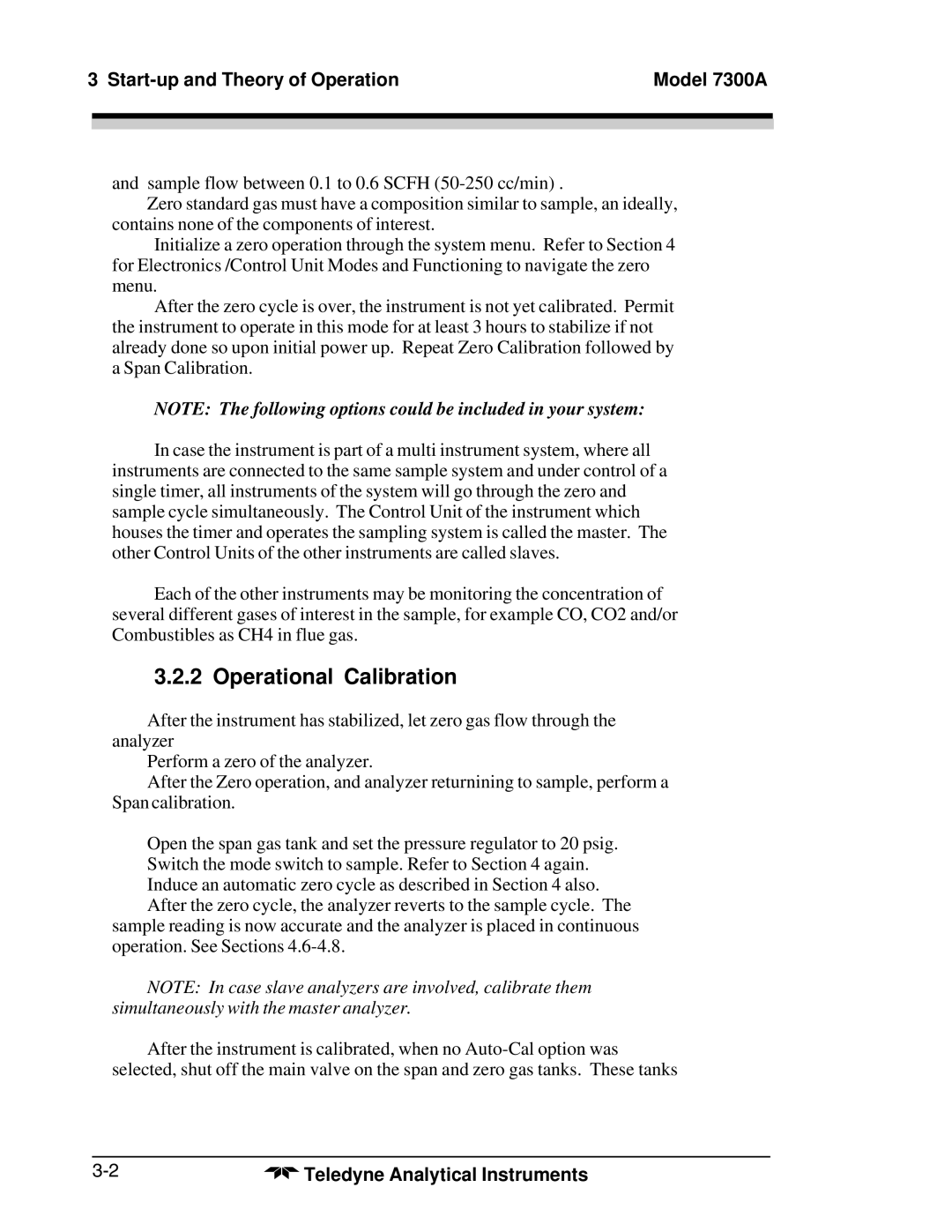3 | Model 7300A | |
|
|
|
|
|
|
|
|
|
and sample flow between 0.1 to 0.6 SCFH
Zero standard gas must have a composition similar to sample, an ideally, contains none of the components of interest.
Initialize a zero operation through the system menu. Refer to Section 4 for Electronics /Control Unit Modes and Functioning to navigate the zero menu.
After the zero cycle is over, the instrument is not yet calibrated. Permit the instrument to operate in this mode for at least 3 hours to stabilize if not already done so upon initial power up. Repeat Zero Calibration followed by a Span Calibration.
NOTE: The following options could be included in your system:
In case the instrument is part of a multi instrument system, where all instruments are connected to the same sample system and under control of a single timer, all instruments of the system will go through the zero and sample cycle simultaneously. The Control Unit of the instrument which houses the timer and operates the sampling system is called the master. The other Control Units of the other instruments are called slaves.
Each of the other instruments may be monitoring the concentration of several different gases of interest in the sample, for example CO, CO2 and/or Combustibles as CH4 in flue gas.
3.2.2 Operational Calibration
After the instrument has stabilized, let zero gas flow through the analyzer
Perform a zero of the analyzer.
After the Zero operation, and analyzer returnining to sample, perform a Span calibration.
Open the span gas tank and set the pressure regulator to 20 psig. Switch the mode switch to sample. Refer to Section 4 again. Induce an automatic zero cycle as described in Section 4 also. After the zero cycle, the analyzer reverts to the sample cycle. The
sample reading is now accurate and the analyzer is placed in continuous operation. See Sections
NOTE: In case slave analyzers are involved, calibrate them simultaneously with the master analyzer.
After the instrument is calibrated, when no
Teledyne Analytical Instruments |
